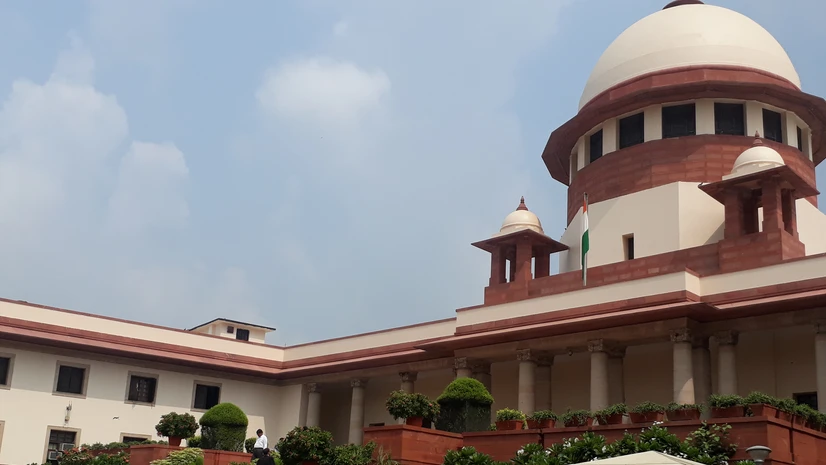Climate change impacts the constitutional guarantee of the right to equality, the Supreme court has said while constituting a committee to find a balance between conservation of critically-endangered Great Indian Bustard and renewable energy infrastructure in the states of Rajasthan and Gujarat.
The top court recalled an earlier order of April 2021 that required undergrounding of overhead transmission lines across an area of over 80,000 sq km in the two states.
A bench of Chief Justice D Y Chandrachud and Justices J B Pardiwala and Manoj Misra said a blanket direction for undergrounding high voltage and low voltage power lines needs recalibration.
"Climate change may impact the constitutional guarantee of the right to equality. Without a clean environment which is stable and unimpacted by the vagaries of climate change, the right to life is not fully realised. The right to health (which is a part of the right to life under Article 21) is impacted due to factors such as air pollution, shifts in vector-borne diseases, rising temperatures, droughts, shortages in food supplies due to crop failure, storms, and flooding," the bench said.
Great Indian Bustards (GIBs) are especially found in Rajasthan and Gujarat, and the alarming decrease in their numbers is attributed to frequent collisions with overhead power transmission lines, including those of solar plants, near their habitats.
Also Read
GIBs have lateral vision as their eyes are on the sides of their head and they find it difficult to change their course of flight when confronted with a live wire.
The apex court said lack of reliable electricity supply for many citizens not only hinders economic development but also disproportionately affects communities, including women and low-income households, further perpetuating inequalities.
The bench in an order, passed on March 21, formed an expert committee comprising Director, Wildlife Institute of India, Dehradun, Dr Hari Shankar Singh, member, National Board for Wildlife, Dr Niranjan Kumar Vasu, former Principal Chief Conservator of Forest, B Majumdar, former Chief Wildlife Warden and Principal Chief Conservator of Forest, Maharashtra, Dr Devesh Gadhavi, Deputy Director, The Corbett Foundation, Lalit Bohra, Joint Secretary (Green Energy Corridor), Ministry of New and Renewable Energy; and Joint Secretary, Ministry of Environment, Forests and Climate Change.
The work of the committee would also traverse the area of the setting up of transmission lines to facilitate solar power generation.
"The right to a healthy environment encapsulates the principle that every individual has the entitlement to live in an environment that is clean, safe, and conducive to their well-being. By recognising the right to a healthy environment and the right to be free from the adverse effects of climate change, states are compelled to prioritise environmental protection and sustainable development, thereby addressing the root causes of climate change and safeguarding the wellbeing of present and future generations.
"It is imperative for states like India, to uphold their obligations under international law, including their responsibilities to mitigate greenhouse gas emissions, adapt to climate impacts, and protect the fundamental rights of all individuals to live in a healthy and sustainable environment," the bench said.
The judgment came on a petition by wildlife activist MK Ranjitsinh and others to protect the GIB.
The top court, in its 2021 judgement on the PIL, had passed a slew of directions to save the GIB.
It had earlier directed the governments of Gujarat and Rajasthan to replace overhead electric cables with underground cables, wherever feasible, and install bird diverters in priority areas where GIBs live.
(Only the headline and picture of this report may have been reworked by the Business Standard staff; the rest of the content is auto-generated from a syndicated feed.)

)
